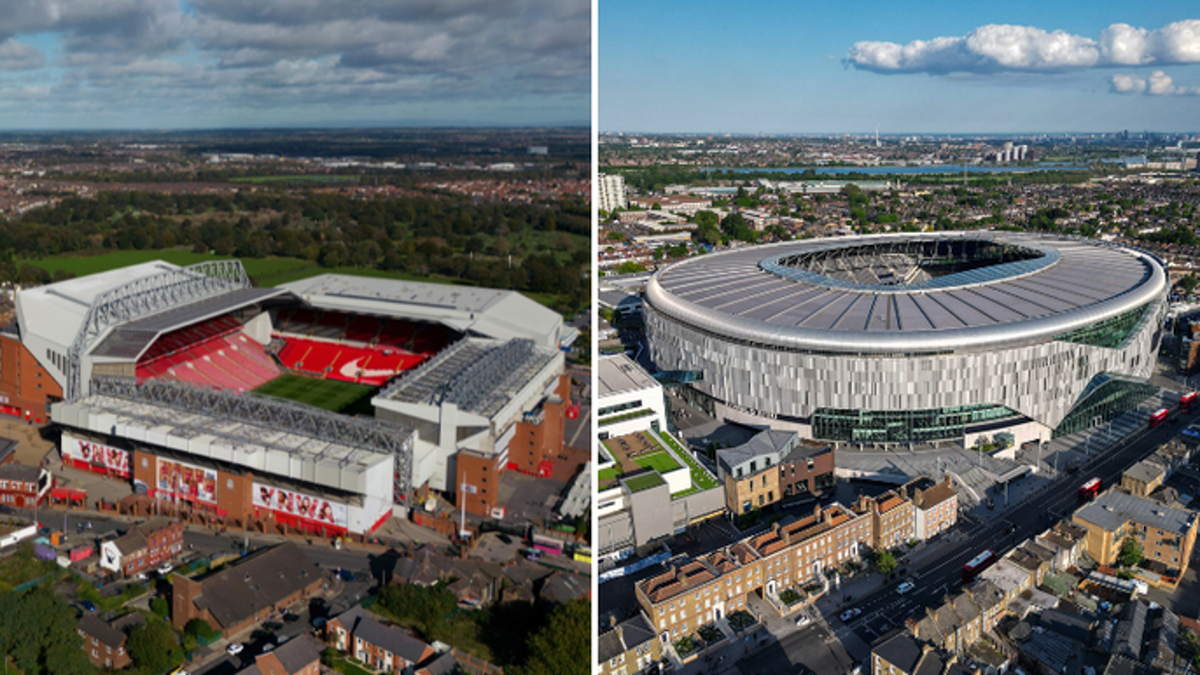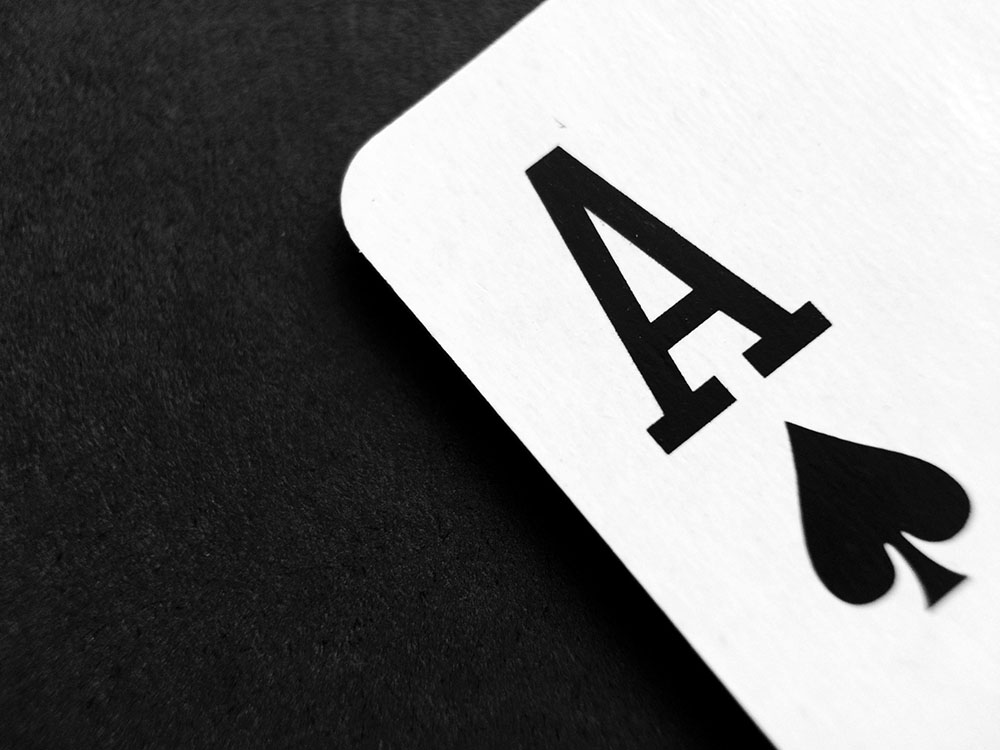Fitness
Paralympian says NHS prosthetics must improve to win GB more gold
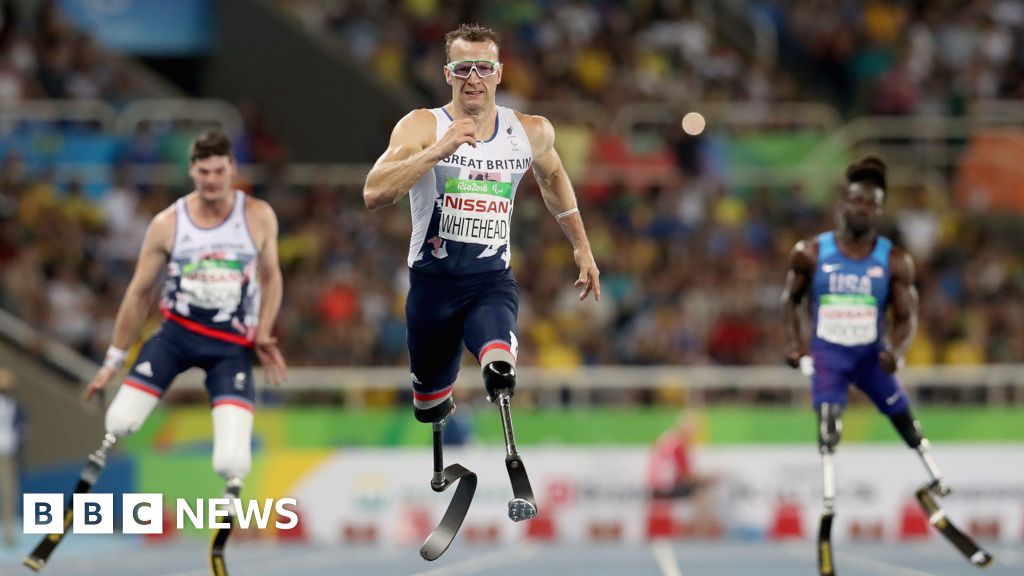
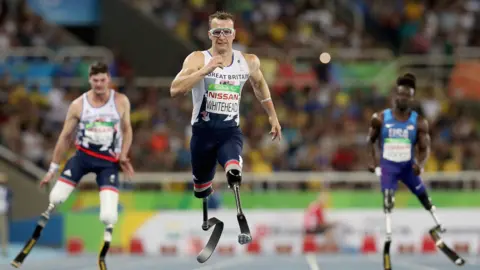 Getty Images
Getty ImagesA reigning Paralympic champion has told BBC News that NHS prosthetics need to improve to help produce Great Britain’s “next generation” of gold medallists.
Speaking ahead of the Paris Paralympics, runner Richard Whitehead said the prosthetics were “not fit for purpose” because they failed to allow for a full range of movement and could cause discomfort and skin irritation when running.
The NHS does not routinely provide sports prosthetics – also known as activity limbs – to adults.
NHS England says many fitness and physical activities are possible without a sports-specific prosthetic.
Whitehead, a double above-the-knee amputee who specialises in marathon running, has won numerous world titles. He is also the proud holder of two Paralympic gold medals at much shorter distances, which he competed at because there was not a marathon for his category of disability.
It is the many physical and mental benefits that makes him want to see more amputees involved in sport.
“I want to see a lot more young people running around [and] climbing trees in sports prosthetics, in running blades – I don’t see them,” he told BBC News.
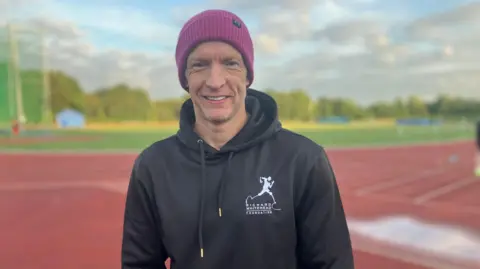 Dan Nelson/BBC
Dan Nelson/BBCIn the United States, if someone with a prosthetic ran a marathon, “it’s not a special occasion”, Whitehead said.
But in the UK, where barriers to participation in sport included a lack of equipment and high costs, it still was.
The cost of lower-limb prosthetics varies greatly depending on type, from £1,000 to over £50,000.
A government fund set up in 2017 means any eligible child can obtain a sports prosthetic through their local NHS England limb centre.
But after the age of 18, this funding stops and patients instead receive prescription-based NHS walking limbs based on their individual needs, which was why they often gave up sport, Whitehead said.
NHS prescriptions were “restrictive” and some patients even told to be less physically active so they would not grow out of their prosthetics.
Jamie Gane, the world number one for para obstacle-course racing, had a below-the-knee amputation in 2016, but it took some time to obtain the right prosthetics to get started on his journey into elite sport.
Soon after his amputation, Gane was given an NHS-prescribed prosthetic foot he describes as “useless” as it was too hard to walk on.
As he was waiting for more surgery, it would have taken 18 months for him to be given a prosthetic leg he could walk on, so he paid to have one fitted privately so he could use the gym and eventually start running.
Once he could prove he would use it for sport, Gane was given an NHS limb suitable for his level of fitness – but he says it did not allow him the range of movement he needed.
“I could probably do a couple of Parkruns and a little bit of sport but nowhere near the level that I do now,” he says.
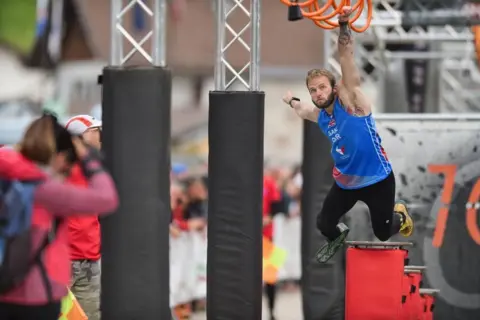 Jamie Gane
Jamie GaneBut David Rose, from the Limbless Association charity, says improvements in technology and more funding mean the NHS prosthetics service is already helping people achieve more “than it did even five to 10 years ago”.
Since losing his leg 45 years ago, Mr Rose has been fitted with numerous NHS prosthetics.
A keen cricketer for much of his life, he says playing sport was the only thing that kept him going
And while he sympathises with Whitehead’s view, “we have to make the best of what we have”.
Walid Saleh, 26, a single-leg amputee since he was a teenager, was inspired by Whitehead winning the 200m gold at the London Paralympics.
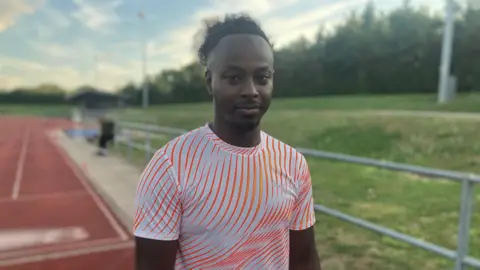 Dan Nelson/BBC
Dan Nelson/BBCAnd Whitehead’s charitable foundation is now helping him towards his own dream, competing at the 2028 Los Angeles Paralympics, by providing him with his first running limbs.
But Saleh says being an athlete is about more than just winning and gold medals – and his mental health has improved since becoming more active.
“The running blades allow me to overcome my disability,” he says.
As the 2024 Paralympics begin, Whitehead wants his foundation to inspire the next generation.
But he added: “To have the next generation of Paralympic athletes and gold medallists, we need to make a change – and that change needs to start with the NHS really believing what is the best for the patients.”
An NHS England official said the NHS provided a range of prosthetics to those who had lost limbs and many fitness and physical activities were possible without a sports-specific prosthetic.
When assessing whether patients would benefit from prosthetics or adaptations that would help fitness and physical activities, healthcare providers considered various factors – including whether patients had a history of participating in activity and were fit enough to use them, the official added.


